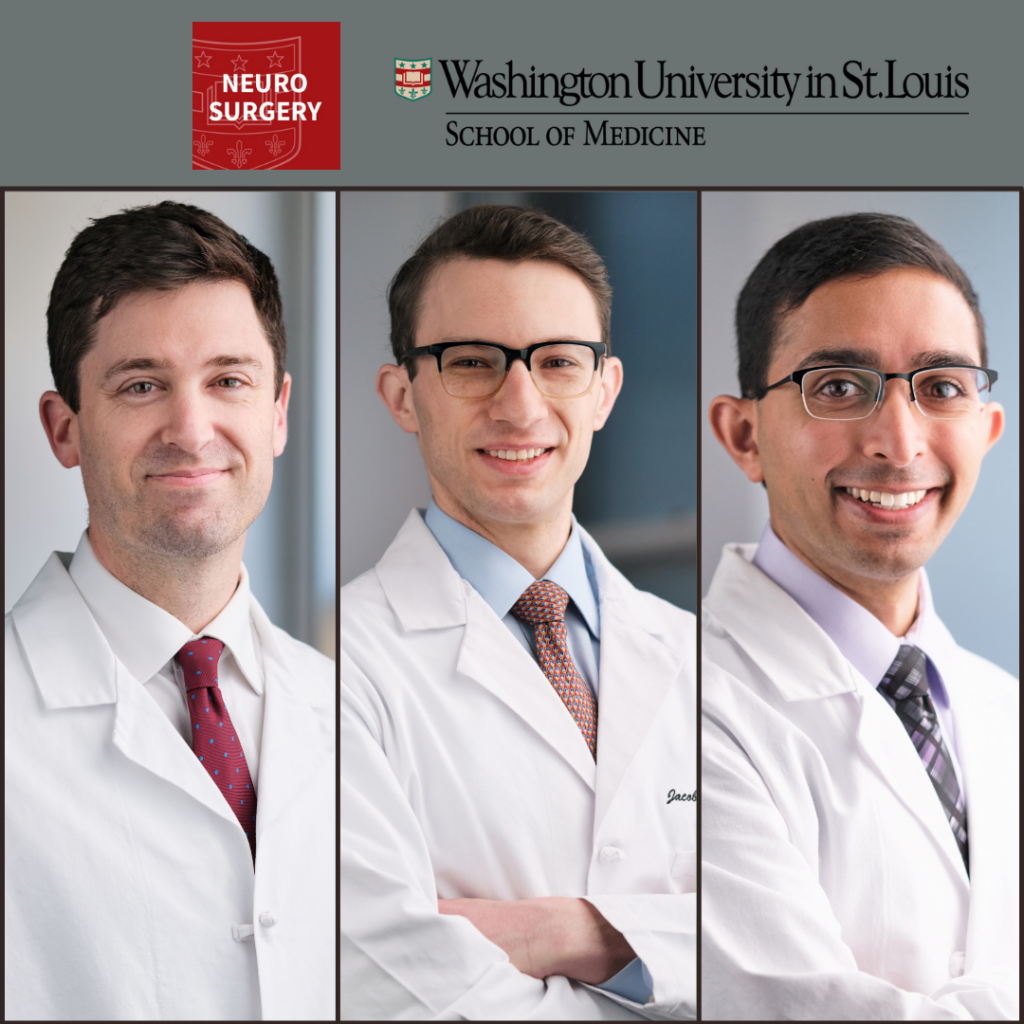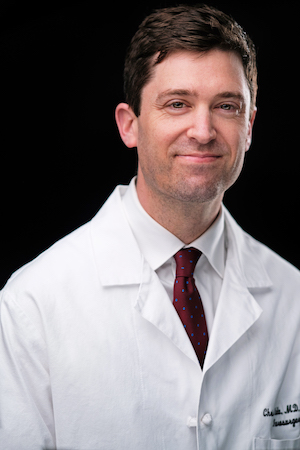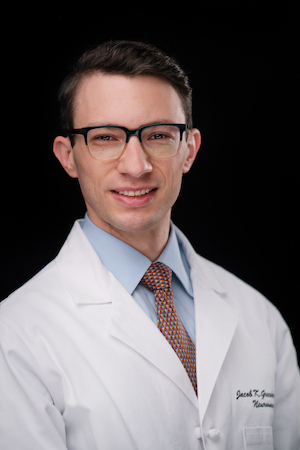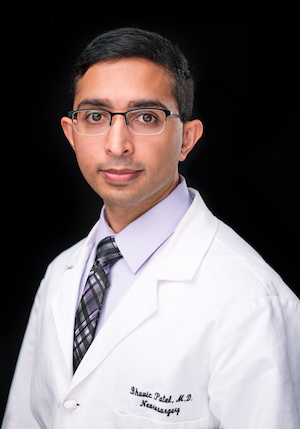
As our Chiefs prepare for the next chapter of their careers, they reflect on their time as neurosurgery residents at Washington University.

Christopher Dibble, MD, PhD
It’s been seven years, but can you remember what initially drew you to applying to the WashU residency program?
Initially, I was drawn to the exciting personalities and big names in the faculty at Wash U. The broad range of clinical and research experiences here was amazing.
What are your immediate professional and personal plans after graduation?
Immediate professional plans are to do a fellowship in complex spine surgery at Duke University, then to look for a job. Personal plans are to go on vacation to the southeastern beaches, and have our first child in September.

Jacob Greenberg, MD
It’s been seven years, but can you remember what initially drew you to applying to the WashU residency program?
I came to Wash U because of the combination of intensive, high-volume clinical training, extensive academic/research opportunities, and high-quality mentorship. The program has certainly met my expectations on all fronts.
What are your immediate professional and personal plans after graduation?
I will be starting a complex spine fellowship at Cleveland Clinic in August, with plans to pursue a practice in academic spine surgery.
Do you have any departing advice for our incoming PGY1 interns?
The saying “the days are long, but the years are short” is true. Soak up everything you can learn, because although it doesn’t seem like it, soon enough you’ll be finishing and starting out on your own.

Bhuvic Patel, MD
It’s been seven years, but can you remember what initially drew you to applying to the WashU residency program?
I was drawn to the neurosurgery program here because of the camaraderie I saw among the residents and the array of cutting-edge surgeries being performed here in every neurosurgical subspecialty. Besides this I felt that the residency program had a culture of training residents to be attentive to patient’s other medical needs outside of the operating room and provided rich opportunities for academic pursuits. Together, I felt that these characteristics of the residency program would position me well to pursue a career in academic neurosurgery.
What are your immediate professional and personal plans after graduation?
After graduation I will be visiting my family and then traveling to Heidelberg, Germany where I will complete my Van Wagenen Fellowship as a post-doctoral fellow in Dr. Felix Sahm’s laboratory. I will be performing epigenetic research of meningiomas using methylation array analysis. Thereafter, I will complete a clinical fellowship in skull base neurosurgery with Dr. Paul Gardner at the University of Pittsburgh Medical Center where I will develop expertise in performing expanded endoscopic endonasal skull base surgery for treatment of anterior skull base lesions.
Do you have any departing advice for our incoming PGY1 interns?
I would advise our incoming interns to make the absolute most of their neurosurgery training experience and never take a moment for granted. It is a special time of one’s educational career during which a tremendous amount of personal and professional growth occurs in a relatively short period of time.